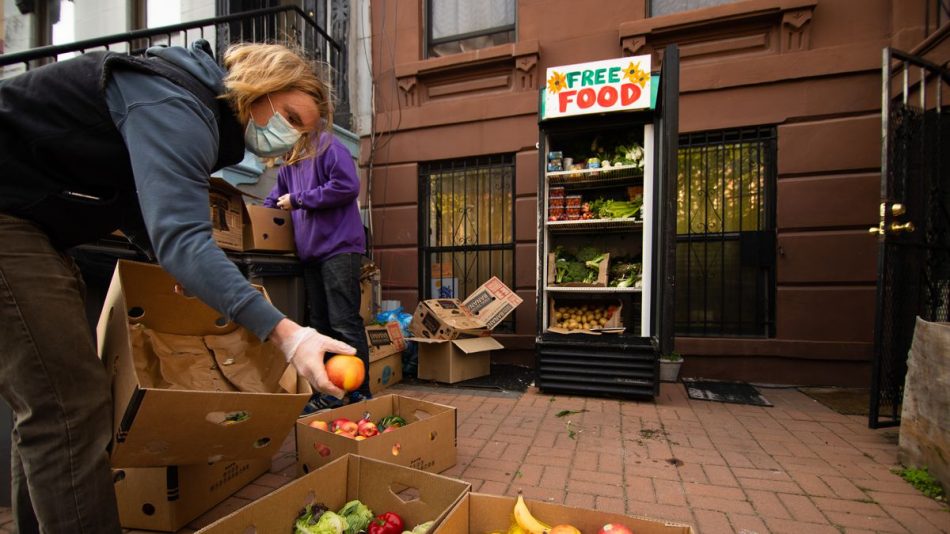In early February, Thadeaus Umpster found a free refrigerator on Craigslist. He intended to use the glass-door fridge, the kind you might find in a supermarket, to store donations for the weekly food share he helps run in Herbert Von King Park in Brooklyn. Just one problem: When he brought it home, it was too big to fit through the front door.
He left it outside, within the small gated area in front of the Bed-Stuy brownstone home he shares with roommates, while he figured out what to do with it. A few days later, one of the health-food stores that regularly donates to the food share arrived with a late delivery that included perishables. Umpster plugged in the fridge, filled it up, and drew “Free Food” and a heart on a piece of paper that he taped to the top of the fridge.
“The first night we set it out, I told my housemates, ‘I don’t know if this is a good idea. I don’t know if this is good for the house or if it might attract some negative energy,’” Umpster tells Curbed. “So far, we’ve only had positive interactions because of it.”
The premise of the free-food fridge is simple: Take what you need and leave what you don’t. Umpster and his housemates keep the fridge clean and make sure it’s always stocked. On any given day, you might find fresh produce, eggs and dairy, bread, and grains inside; the mix depends on what’s been donated, but it’s what you’d typically find at a grocery store. In some instances, neighbors have taken raw items, cooked them, and returned prepared food.
MelPaola Murillo, an asylum seeker from Central America, is one of those neighbors. While she’s waiting on work permissions, she relies on free resources to survive. She lives about a mile away from the fridge and visits it weekly for things like plantains, tomatoes, nopales, cilantro, and parsley. Umpster posts images of the fridge’s contents on Instagram almost every day, so when it’s stocked with things Murillo likes, she comes by and takes what she needs. “It feels good because no one is there asking questions or judging what or how much I take,” she says.
Through word of mouth, media coverage of Umpster’s fridge, and heightened awareness of food insecurity due to the pandemic, the community-fridge idea has spread through the city thanks to individuals who wanted to contribute more to their neighborhoods. There are now three refrigerators in Brooklyn, one in Manhattan, and one in the Bronx (one in Bushwick even has its own Instagram).
Those of us at the Optimist DaIly love the simple, yet powerful communal nature of the community fridge. Will we start seeing community fridges in your community?











